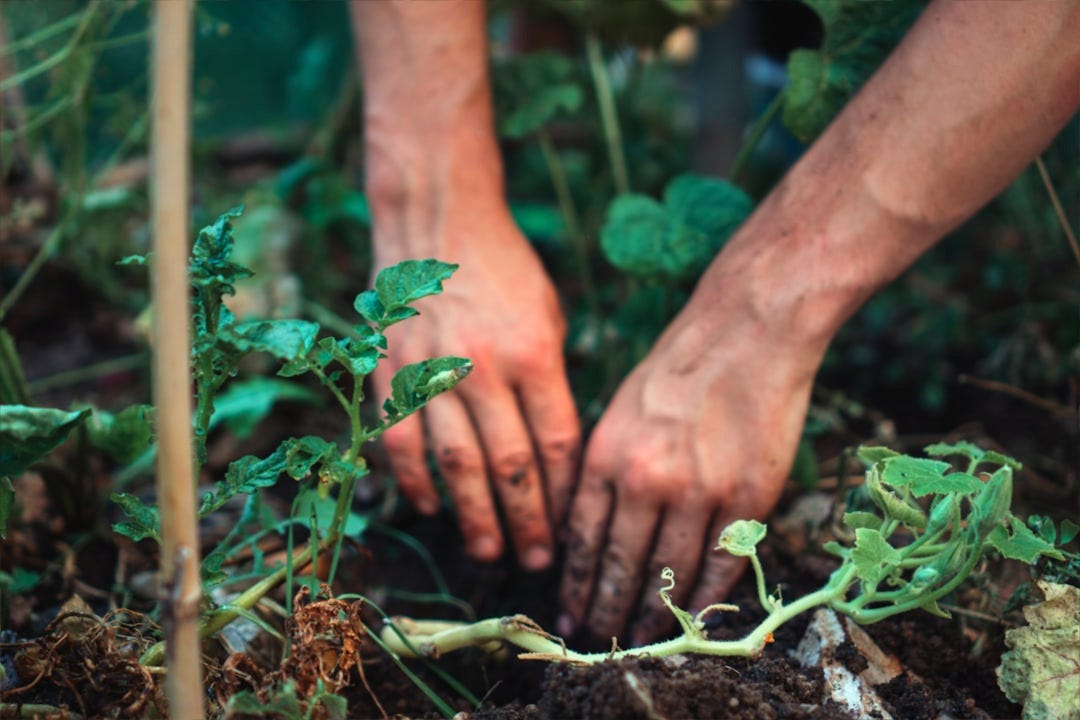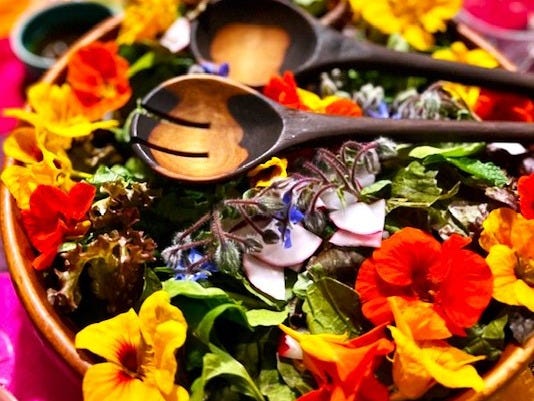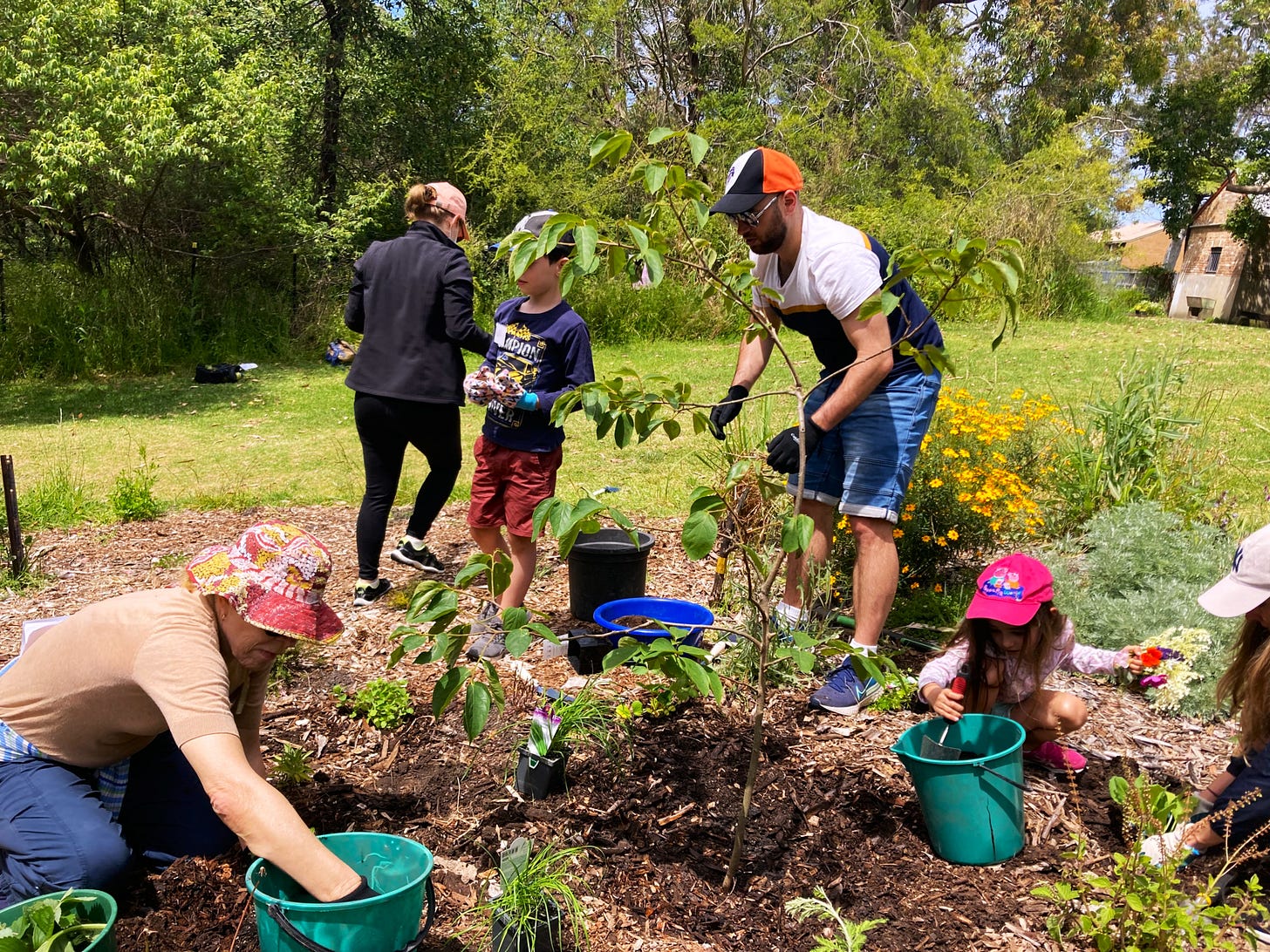I always remember the wonder of the first tomato I grew, seed becoming fruit in such a short space of time, something from almost nothing. I was hooked on this miracle although I knew next to nothing about gardening.
My parents had joyfully liberated themselves from their childhood chores of food growing and chicken minding through the Depression years. By the time I was a child in the sixties, my father had banished the old fruit trees from our backyard so the lawn could be more easily mowed. Our neighbours who had an orchard, chook yard and vegetable patch were hopelessly old-fashioned, wearing themselves out in their backyards, said Mum. But I was fascinated by their wonderland of life with its earthy smells and abundant crops, and would regularly duck through the gate between our yards, coming home with a bottle of homemade ginger beer and brown paper bags of Chinese gooseberries (aka kiwifruit), feijoas and tamarillos.

All of this was forgotten when I left home as I shared houses and moved between countries for some years. Until finally I stayed somewhere long enough to put seeds into the tiny backyard of my inner city flat, excited by the idea that I could grow my own food, even if it was only tomatoes and herbs.
My big gardening break came a few years later when my friends, Helen and Gus, bought a property outside of Canberra which they promptly turned into a wildlife refuge. The land itself had been badly degraded by goat farming. After years of working as an environmentalist living in the inner city, what Gus most wanted to do was to regenerate land, build a mudbrick house and establish an orchard and vegetable garden. Extra hands were always welcome, so for the next ten years I visited often helping to plant trees, weed and water gardens and slap render on mudbrick walls. The work was often hard but always satisfying. I discovered what my hands could achieve and once back in the city, my gardening life took off fertilised by my new found skills.
For the last twenty years I have lived in a townhouse which has no front or backyard. But I do have a large sunny balcony with a raised garden bed. And across the road is a park with an organic community garden and a permaculture Food Forest. My fingernails are perpetually grubby as I work across all of these spaces. When we first moved in, I was disappointed not to have my own patch of earth at home, but pretty soon I realised what a privilege and opportunity it is to live next to parkland which, in these last twenty years, has become a home to a native nursery and wetlands, as well as the Food Forest and Community Garden. Each day I head over to the park, carrying my compost bucket and gardening tools, marvelling at the burgeoning bird and insect life, eager to see what has blossomed overnight.
For many years, the community garden was my refuge, a place to recover from my psychotherapy work and then later climate psychology research. The garden is in a secluded spot, so often I would be there alone, watched only by our resident grey crane. Other times I would get to chat a bit with other gardeners, pick up tips and swap produce. Either way it was place to ground myself, open to the skies and be productive, all of which gave me solace as I became more immersed in the complexity and intractability of climate issues.
But it was not long before I realised my gardening refuge is as vulnerable to climate pressures as I am. In the last ten years, drought, water restrictions and heatwaves have not spared the gardens in some seasons, while in others wild storms have washed away crops and top soil. Climate disruption has crept into the fabric of local gardening life, affecting what we plant, how we mulch, when we water. The learning and experimenting is cumulative, matching the climate’s instability.
Alongside this is an increasing acknowledgement of the benefits of community gardening. For many people like myself, the joy of growing plants and the wellbeing that comes with time spent outside with community is obvious and immediate. But beyond this lies a far more complex web of interconnections which boosts local ecosystems and the social fabric of the neighbourhood. As I witness this more, my appreciation of community gardening deepens, so that I now see it as both central to my response to the ecological crisis, as well as a joyful way to manage it stresses. How this shift in perspective translates into my life, is that I now volunteer on the Committees of both the Garden and the Forest. To be honest, organising is nowhere as pleasurable as gardening is for me, but it is meaningful and not without its satisfactions. Already, I have been able to use my influence and knowledge to put carbon sequestration, biodiversity, food security and social equity high on the Committee agendas.
Fortunately, our local council is also on board with building climate resilience. In the last ten years, it has given extra land to our park allowing the community garden to double in size and the permaculture Food Forest to be established through a process of community consultation and volunteer labour. What this means is that a couple of hundred locals are now gardening together producing food for themselves and the community, composting food waste, improving soil and increasing the biodiversity, especially of pollinators. And that’s before we even start to count the folk volunteering in the native nursery and local bushcare group. On its own, none of this is going to save the world, or even feed the neighbourhood. But as part of a fast-growing global movement, urban farming and community gardens are contributing to a food revolution which benefits ecologies, wellbeing and community cohesion. The wins are multiple and compounding, as many a study has confirmed.
I am telling you about this now because the ecological crisis is biting deeper and politics are getting harsher. Feelings of fear, powerlessness and overwhelm are bubbling over. Little wonder that Substack is full of articles right now about nervous system dysregulation and social media regulation. Self-care is vital in these chaos making times. But calming and protecting ourselves is just the beginning. Beyond this is a call to make something of these times. Something healing. To dedicate our hands to working in service of a lively and loving world, and to weaving caring cultures. We need all hands on deck to hold life affirming values and to enact them. For me gardening has been a portal into thinking and doing things differently, holding Earth and community wellbeing in mind. But your hands might be made for entirely different pursuits. Whatever these might be, there is some action they can take which can contribute to cultivating healthy ecosystems and communities of care.
Invitation: Hand in hand
It is crucial that our healing actions connect us with others.
and I got chatting over Substack a few weeks ago when I responded to a note she put out about mending socks. I love a bit of handiwork! As we chatted, we cooked up an idea for faciliating a talking circle on the theme of cultivating care and creativity in times of ecological crisis, inviting attendees to bring along something of what they are holding and/or making in response to the crisis. Something which might represent a feeling or place (a shell, a feather) or work you are engaged in (gardening, mending), or maybe a book, image or poem that speaks you.Here is our invitation for Wednesday Feb 12th, we would love it if you could join us:
In our hands: Responding to the ecological crisis with creativity and care
With Julia Adzuki and Sally Gillespie
A conversation circle on the themes of cultivating care and creativity in times of ecological crisis. We invite to bring along something of what you are holding and/or making in response to the crisis. This might be a symbolic representation of a feeling or place (a shell, a stone), of work you are engaged in (gardening, mending), a poem, image or a book that speaks to you.
Julia and Sally will hold the space open for reflective conversations to encourage companionship and inspiration, grounded in the recognition that we are never alone in engaging with the work of attending and caring for our world and all her beings, including ourselves.
We will meet on Weds, 12th of February for one hour:
9:30 am CET ( Stockholm) / 8:30 GMT (London) /19:30 AEST (Sydney) /16:30 AWST (Perth)/ 21.30 NZT.
To register and get Zoom link, please DM Julia or Sally, or email sallymgillespie@icloud.com







here's to gardens, herbs, vegetables, community! i am with grandchildren on wednesday but will be with you in spirit xx
Great initiative between you and Julia, Sally. Thank you! I unfortunately can't tune in at that time but if there's an opportunity to record it I would most definitely listen in later.